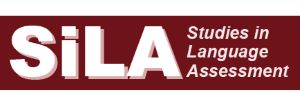Contextual variables in written assessment feedback in a university-level Spanish program
Kathryn Hill, Deakin University, Australia
Ana Maria Ducasse, RMIT University, Australia
Ana Maria Ducasse, RMIT University, Australia
|
https://doi/10.0000/0000
|
Volume 11, Issue 1, 2022
|
Abstract: The ‘situated’ nature of assessment may help to explain why feedback interventions are successful in one setting but not in another. This study reanalyses data from an earlier study (Ducasse & Hill, 2019) using a coherent theory of context, Bronfenbrenner’s ecological framework (1979), to investigate contextual influences on teacher feedback practices and learner responses respectively. Participants comprised 15 beginner, intermediate and advanced level students in an Australian university Spanish language program. Data comprised summative feedback on writing tasks and audio-recordings and transcripts of teacher and student think-aloud protocols, and discussions. Data were analysed in relation to the five systems of Bronfenbrenner’s framework (microsystem, mesosystem, exosystem, macrosystem and chronosystem). The study found teacher practices appeared to be influenced by perceptions of the learners in addition to task and performance characteristics (microsystem), by institutional policies and practices (exosystem) and by external professional accreditation standards (macrosystem). Contextual factors found to influence learner responses included perceptions of the teacher, the timing and valence of feedback (microsystem), course level and maturity as a learner (chronosystem) as well as by other subjects the learners were enrolled in (mesosystem). The study demonstrates the utility of Bronfenbrenner’s framework for systematic reflection on contextual influences in language assessment research.
Keywords: Feedback, context, Bronfenbrenner's ecological framework, feedback literacy, language assessment literacy
